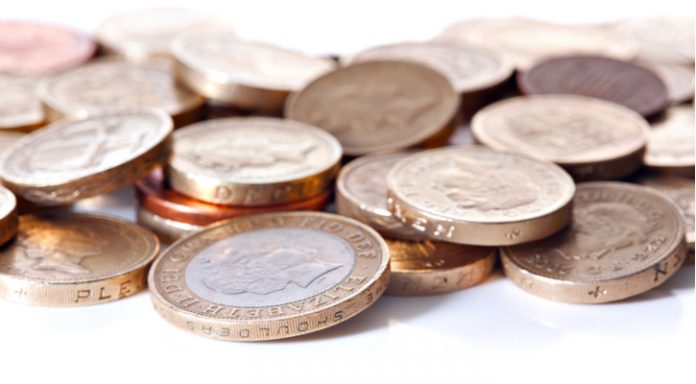The pound jumped higher as political party conference week kicked off and Labour fuelled Brexit optimism. The pound hit a high of €1.1214 versus the euro, its fourth straight session of gains on Wednesday. However, the pound has started Thursday softer versus the euro.
| What do these figures mean? |
|---|
|
When measuring the value of a pair of currencies, one set equals 1 unit and the other shows the current equivalent. As the market moves, the amount will vary from minute to minute. For example, it could be written: 1 GBP = 1.13990 EUR Here, £1 is equivalent to approximately €1.14. This specifically measures the pound’s worth against the euro. If the euro amount increases in this pairing, it’s positive for the pound. Or, if you were looking at it the other way around: 1 EUR = 0.87271 GBP In this example, €1 is equivalent to approximately £0.87. This measures the euro’s worth versus the British pound. If the sterling number gets larger, it’s good news for the euro. |
The labour party conference started on Wednesday and the pound received a lift from opposition party leader Jeremy Corbyn. Mr Corbyn had previously said that his party, the UK Labour party, would vote against any Brexit deal UK Prime Minister Theresa May would try to push through Parliament. This would make voting a Brexit deal through extremely difficult for Theresa May. However, at Labour’s annual party conference Jeremy Corbyn softened his stance, saying that he would back a Brexit deal which keeps the UK in the single market.
This is a step in the right direction for a softer Brexit deal and given how sensitive the pound is to any Brexit headlines, this was sufficient to give the pound a lift. Economists and business leaders consider a soft Brexit deal to be the least damaging option for the UK economy.
| Why is a “soft” Brexit better for sterling than a “hard” Brexit? |
|---|
| A soft Brexit implies anything less than UK’s complete withdrawal from the EU. For example, it could mean the UK retains some form of membership to the European Union single market in exchange for some free movement of people, i.e. immigration. This is considered more positive than a “hard” Brexit, which is a full severance from the EU. The reason “soft” is considered more pound-friendly is because the economic impact would be lower. If there is less negative impact on the economy, foreign investors will continue to invest in the UK. As investment requires local currency, this increased demand for the pound then boosts its value. |
There is no economic data to be released for the UK today. However, Bank of England (BoE) Governor Mark Carney is set to speak in Frankfurt. If Mr Carney touches on tightening monetary policy as his colleague Vlieghe did at the beginning of the week, the pound could continue to rally.
| Why do raised interest rates boost a currency’s value? |
|---|
| Interest rates are key to understanding exchange rate movements. Those who have large sums of money to invest want the highest return on their investments. Higher interest rate environments tend to offer higher yields. So, if the interest rate or at least the interest rate expectation of a country is relatively higher compared to another, then it attracts more foreign capital investment. Large corporations and investors need local currency to invest. More local currency used then boosts the demand of that currency, pushing the value higher. |
Slew Of Eurozone Data Due
There was no high impacting eurozone data on Wednesday and no influential eurozone headlines to drive trading either. This meant the euro had a relatively quiet session
Today things will pick up and investors will be looking towards a busy eurozone economic calendar. The ECB will publish its Economic bulletin, there is German business confidence data and there is also eurozone inflation data as measured by the consumer price index (CPI). The inflation data will be closely watched after European Central Bank President Mario Draghi said he saw a strong outlook for inflation. Analysts are expecting inflation to hold steady at 2%. Should inflation move higher, the euro could receive a boost.
This publication is provided for general information purposes only and is not intended to cover every aspect of the topics with which it deals. It is not intended to amount to advice on which you should rely. You must obtain professional or specialist advice before taking, or refraining from, any action on the basis of the content in this publication. The information in this publication does not constitute legal, tax or other professional advice from TransferWise Inc., Currency Live or its affiliates. Prior results do not guarantee a similar outcome. We make no representations, warranties or guarantees, whether express or implied, that the content in the publication is accurate, complete or up to date. Consult our risk warning page for more details.
This article was initially published on TransferWise.com from the same author. The content at Currency Live is the sole opinion of the authors and in no way reflects the views of TransferWise Inc.





